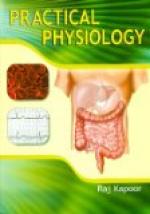Aqueous Humor (Lat. aqua, water). The watery fluid occupying the space between the cornea and crystalline lens of the eye.
Arachnoid Membrane (Gr. arachne, a spider, and eidos, like). The thin covering of the brain and spinal cord, between the dura mater and the pia mater.
Arbor Vitae. Literally, “the tree of life”; a name given to the peculiar appearance presented by a section of the cerebellum.
Areolar (Lat. areola, a small space, dim. of area). A term applied to a connective tissue containing small spaces.
Artery (Gr. aer, air, and tereo, to contain). A vessel by which blood is carried away from the heart. It was supposed by the ancients to contain only air, hence the name.
Articulation (Lat. articulo, to form a joint). The more or less movable union of bones, etc.; a joint.
Arytenoid Cartilages (Gr. arytaina, a ladle). Two small cartilages of the larynx, resembling the mouth of a pitcher.
Asphyxia (Gr. a, without, and sphixis, the pulse). Literally, “without pulse.” Condition caused by non-oxygenation of the blood.
Assimilation (Lat. ad, to, and similis, like). The conversion of food into living tissue.
Asthma (Gr. asthma, a gasping). Spasmodic affection of the bronchial tubes in which free respiration is interfered with, owing to their diminished caliber.
Astigmatism (Gr. a, without, and stigma, a point). Irregular refraction of the eye, producing a blurred image.
Atrophy (Gr. a, without, and trophe, nourishment). Wasting of a part from lack of nutrition.
Auditory Nerve (Lat. audio, to hear). The special nerve of hearing.
Auricle (Lat. auricula, a little ear). A cavity of the heart.
Azygos (Gr. a, without, and zugos, a yoke). Without fellow; not paired.
Bacteria (bakterion, a staff). A microscopic, vegetable organism; certain species are active agents in fermentation, while others appear to be the cause of infectious diseases.
Bactericide (Bacterium and Lat. caedere, to kill). Same as germicide.
Bile. The gall, or peculiar secretion of the liver; a viscid, yellowish fluid, and very bitter to the taste.
Biology (Gr. bios, life, and logos, discourse). The science which treats of living bodies.
Bladder (Saxon bleddra, a bladder, a goblet). A bag, or sac, serving as a receptacle of some secreted fluid, as the gall bladder, etc. The receptacle of the urine in man and other animals.
Bright’s Disease. A group of diseases of the kidney, first described by Dr. Bright, an English physician.
Bronchi (Gr. brogchos, windpipe). The first two divisions, or branches, of the trachea; one enters each lung.
Bronchial Tubes. The smaller branches of the trachea within the substance of the lungs terminating in the air cells.




